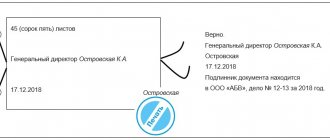Is it necessary to represent the interests of a legal entity?
A power of attorney for the manager is drawn up for the purpose of transferring all or some of the powers of the general director to the management team , based on the current operational need:
- Transfer the right to manage a branch or representative office of a subsidiary.
- Replace the General Director in relevant legal situations that the manager is required to perform.
- Transfer of powers to the deputy on an ongoing basis, for the appropriate period specified in the document.
The basic basis for the authority of such a document is the obligation of the principal, who is the general director, to perform the delegated functions.
REFERENCE! Acting on behalf of the organization, the CEO acts as a principal.
The transfer of powers is regulated by the functional responsibilities assigned to the principal and the reasons why he has the right to transfer them. For example, when expanding the scope of the company’s activities, or when it is impossible to fulfill them yourself due to being on vacation, at a meeting, or while performing other functional duties.
Types of powers of attorney
Let's look at situations in which it may be necessary to draw up a power of attorney for the right to act on behalf of the company. These may be the following situations:
- Representation of the organization in the tax service. Very often, an accountant, when submitting reports or simply when contacting his tax inspector, visits the Federal Tax Service. During each such visit, the accountant is simply required to have with him a power of attorney authorizing him to act on behalf of the company.
- Representation in a judicial body. During a court hearing against or vice versa on a claim by a legal entity, the person representing the organization must have a power of attorney. Only the sole executive body, that is, the general director himself, acting on behalf of a legal entity on the basis of the Charter, has the right not to have such a power of attorney.
- Representation of an organization when receiving funds or goods, materials, equipment. Such situations often occur during the economic life of an organization.
- Representation of the sole executive body if the general director is unable to perform his duties. These may be cases of vacation, sick leave, business trip or maternity leave of the general director, when he actually cannot perform his duties and transfers them to one of the employees.
In what cases is a document necessary?
By an official order, the director can oblige his subordinate to execute one or another order , without transferring a power of attorney. This is explained by the fact that the manager is charged with the direct organization of the company’s activities, and not with the detailed development of strategic or regulatory resolutions.
Therefore, the manager has the right to transfer such instructions by local order, which does not require the preparation of trust documentation. For example, include among the responsibilities of an accountant the responsibility for maintaining and issuing work books if the company does not have personnel records.
A power of attorney is required only where the person receiving the power of attorney will act as a deputy manager in some part of the production process , which must be performed by the general director. Or - replace him completely (acting) for a period of time:
- sick leave;
- labor or study leave;
- internships or business trips.
That is, drawing up a power of attorney is required when the manager will make statements on behalf of the manager to business partners or on other significant issues. And also if he has to sign documentation on behalf of the manager.
Powers, responsibilities and duties of the head of the non-profit organization.
The activities of non-profit organizations differ from commercial ones, primarily in that the funds received by the NPO are not distributed among its founders. All proceeds are directed to specific purposes: specific people who need help, solving certain problems (protection of the rights and legitimate interests of citizens, development of sports, culture and art, implementation of socially significant programs and projects).
The sole executive management body of the Organization - the Head of the NPO (director of the NPO, chairman of the NPO, president of the NPO) can exercise representative functions, manage certain areas of the Organization’s activities, and carry out administrative functions. All the competence of the manager is prescribed in the charter, but we do not indicate the Last Name, First Name, and Patronymic in the charter. Information about the director is indicated in the application and minutes of the constituent meeting.
Head of the NPO (may):
- without a power of attorney or under a power of attorney, carries out activities on behalf of the NPO, as well as represents the interests of the Organization and makes transactions on its behalf;
- provides a power of attorney with the right of representation on behalf of the NPO, including powers of attorney with the right of further subrogation;
- the director has the right to open and close bank accounts of the established Organization;
- the manager has the right to exercise basic management of the current activities of the NPO;
- the manager has the right to carry out ongoing management of the activities of created NPOs, committees, commissions, sections, associations and working groups;
- the manager has the right to approve the basic rules, procedures, as well as other internal documentation of the Organization, with the exception of only those documents, the approval of which falls within the competence of other management bodies of the organization;
- the director has the right to admit new members to a corporate organization, however, the procedure for admitting new members falls within the competence of the General Meeting (for corporate organizations);
- the director has the right to expel members from the corporate organization, however, the procedure for expelling members falls within the competence of the General Meeting (for corporate organizations);
- the director has the right to maintain a register of members of the corporate organization;
- the manager has the right, within his own competence, to make decisions and issue orders, as well as various kinds of orders and other documents, on the main issues of the activities of the NPO, which all members and staff employees (for corporate organizations) are required to comply with;
- it is the manager who organizes accounting and reporting in the non-profit organization;
- the director of the NPO has the right to dispose of the property of the NPO within the framework established by the General Meeting of the corporate NPO, the Charter of the NPO and the current legislation of the Russian Federation; (for corporate organizations);
- the head of the NPO (director of the NPO), on behalf of the Organization, interacts with government agencies, government, commercial and non-profit organizations, and also interacts with Russian, foreign and international organizations;
- the head of the Non-Profit Organization manages, on behalf of the Organization, international activities;
- the head of an NPO, as a person acting on behalf of the Organization without a power of attorney, has the right to make claims and various statements of claim on behalf of the NPO against legal entities and citizens of Russia and foreign countries;
- the manager must annually submit a report on extended work to the General Meeting of Members (for corporate organizations);
- the manager must maintain direct contacts, as well as connections with commercial, non-profit and other organizations that support the goals of the NPO, the manager has the right to enter into certain agreements, participate in congresses, discussions, congresses, seminars, round tables, conferences, forums, exhibitions and events ;
- the head of the NPO considers the most pressing problems related to the activities carried out by the Organization;
- the manager is engaged in the preparation of materials, projects and proposals on the implementation and development of the statutory goals of the Non-Profit Organization;
- the head of the Organization has the right to hold conferences, congresses, seminars, round tables, discussions, congresses, forums that would correspond to the goals for which the Organization was created;
- the manager provides the General Meeting of Members with reports on the results of his activities (in corporate organizations);
- establishes the number of staff members of the Organization, determines cost standards for remuneration of their labor;
- The head has the right to help attract investments and direct them to expand the scope of the Organization’s activities, as well as finance projects and programs of a non-profit organization;
- The head (president, director, chairman) of the NPO develops various draft estimates of income and expenses (financial plan) of the Organization for subsequent approval of the estimate (financial plan) at the General Meeting of Members (for corporate organizations);
- The head has the right to dispose of the funds of the Organization, but only within the limits of the budget approved by the General Meeting of members of the organization.
- The activities of the head of the NPO are aimed at organizing the implementation and implementation of the statutory goals of the Organization, the subject of activity and programs of the Organization;
- The manager is responsible for monitoring the work and collecting reports within the framework of programs financed by the Organization;
- The competence of the manager includes the submission to the authorized body of an annual report on the activities of the Organization, which contains information provided for by the current legislation of the Russian Federation, including violations of the requirements of the current legislation that were identified as a result of an audit carried out by the tax authorities, and on specific measures to eliminate these violations;
- The manager attracts the necessary specialists, experts, creative and other teams to perform work, services, projects, examinations, scientific research and development, under labor agreements and civil contracts.
Nuances for different positions of top managers
Let's consider whether there is a difference between powers of attorney for a director and a general director. The general director is appointed by a higher government authority or the founder, who has the right to dispose of the company. Accordingly, the General Director is appointed in accordance with the regulations of the articles:
- Art. 273 Labor Code of the Russian Federation;
- Art. 40 of Federal Law No. 14-FZ of 02/08/98
Its activities are regulated simultaneously by federal norms of Labor legislation and local norms of the Constituent Documentation . Accordingly, in the corporate or departmental hierarchy, the CEO receives a special place. Therefore, when transferring his powers as a general director to his deputy, he must rely on the specified legislation, which requires him to:
- delegation of all their powers;
- complete exclusion of one’s participation from the organizing process;
- transfer of the right to sign and seal (how to issue a power of attorney for the right to sign from the director?).
In other cases, the provisions of Article 43 of the Labor Code of the Russian Federation come into force, when the management consists of more than one manager. In this case, the supreme legal position of the general director is preserved , and the right of substitution that is transferred to the directors is different:
- The fact that the functional responsibilities of the manager are divided between several participants (deputies).
- Each manager is given a separate professional block of authority.
- Or - functional responsibilities are duplicated, but are implemented in a subsidiary or branch, retaining the right of the general director to coordinate all the activities of the company.
IMPORTANT! The General Director has the right to transfer only management functions to the company’s management: in a separate area or due to the remoteness of the division.
Legislative framework
The issue of actions on behalf of a legal entity is determined in Article No. 40 of Federal Law No. 14 of 1998. According to this legislative document, the company can be represented by the executive body of the enterprise , which is elected by the general meeting of all participants.
On a note. In most cases, such an executive body is the general director or president of the company, but other formulations of the position of a citizen are also allowed.
The executive body enters into an agreement with the legal association for a period established in the company's charter. This provision is spelled out in Article No. 1 of Federal Law No. 14.
The law determines that there can be only one executive body in a company - the general director or a citizen holding a similar position. Despite a number of reservations in legislative documents that presuppose the presence of 2 or more executive bodies of a legal entity, in practice this is impossible to implement.
This statement is confirmed by two documents:
- Resolution No. 7075/11 of the Supreme Arbitration Court of the Russian Federation of 2011. This resolution directly states that there can be only one executive body of a company, and it must be an individual.
- Letter of the Federal Tax Service of Russia No. SA-4-14/1645 dated 2014. This letter explains that without a power of attorney, only the executive body, which is represented by one person and must be an individual, can act on behalf of a legal entity.
At the same time, from September 1, 2014, an amendment was made to Article No. 53 of the Civil Code of the Russian Federation, according to which the company’s charter may indicate citizens who have the right to act without a power of attorney on behalf of the enterprise, but at the same time they still cannot be a body of the sole management, but only partially perform its functions.
Who can a manager entrust his powers to during his absence?
Despite the fact that there may be several authorized management officials in a company, management functions are distributed in accordance with the regulations.
In addition to the civil legislation regulating the norms for drawing up powers of attorney under Articles 182-189 of the Civil Code of the Russian Federation, the constituent document comes into force . It may stipulate a rule on the transfer of the powers of the general director to a person holding a certain position, acting as a deputy in accordance with the charter.
If there is no such provision, then, acting as a principal, the manager relies on the norms of civil law, choosing a deputy at his own discretion from among management employees.
Industry powers are transferred to persons holding the status of directors of the relevant profile. For example, if we are talking about developing marketing programs and concluding contracts with consumer companies, then such fiduciary actions can only be transferred to the commercial director.
Instructions for expanding the circle of citizens representing the interests of a legal entity
To expand the circle of persons who can represent the interests of the enterprise in government bodies and in working with other contractors, you will need to perform a number of simple but time-consuming actions:
- Hold a general meeting of founders. This can be either a regular meeting or an extraordinary one.
- Place the issue of expanding the list of persons acting without a power of attorney on behalf of the company on the agenda and include it in the minutes of the meeting.
- Conduct a vote and approve changes to the constituent documents.
- Draw up a new version of the charter, which should describe all persons who have the right to act on behalf of the enterprise and restrictions on actions in relation to them.
Reference. No one other than the sole executive body can combine the functions of management and representation. If such data is entered, the new version of the charter will be declared invalid. - Collect a package of documents to amend the constituent documents:
- application for state registration of a new edition of constituent documents in form P13001;
- minutes of the general meeting of founders, which records the approval of the changes being made;
- a document confirming payment of the state fee for amending the company's charter.
- Submit documents to the regional tax office at the actual location of the enterprise. You can do this in 3 ways:
- in person, through an operator at the Federal Tax Service office;
- by letter, Russian Post, be sure to declare the value of the item;
- send electronically through the online service on the website of the Federal Tax Service of Russia.
- Receive a new extract from the Unified State Register of Legal Entities with the changes made. According to Federal Law No. 129 of 2001, changes are made within 5 working days. Find out about powers of attorney for obtaining an extract from the Unified State Register of Legal Entities, Unified State Register of Legal Entities, Unified State Register of Legal Entities, Unified State Register of Entrepreneurs or a house register here.
In general, after changes to the Civil Code of the Russian Federation in 2014, legal entities have become more free in matters concerning their representatives.
Now general directors can shift part of the functions of representing the company’s interests in government bodies and in relations with counterparties to other persons acting on behalf of the company, thereby freeing up their time to resolve more global issues.
When is a general one required, and when is a simple one required?
The general form must be drawn up if the director is entrusted with the functions of the first manager , but this information is not included in the provisions of the constituent documentation. And also, if the functions of the first manager are duplicated:
- for remote work;
- during the temporary performance of duties of the General Director.
REFERENCE! The transfer of powers entails the representative's liability for violation of labor laws, or for losses incurred by the company due to incorrect decisions of the manager.
If individual special instructions are transmitted, which will require systematic responsible disposition on the part of the official, then they can be transmitted by a simple special power of attorney. Individual instructions can be transferred by a simple one-time power of attorney.
What to do if a government agency requires such paper from the general director?
The requirement for the general director to submit a power of attorney to carry out activities on behalf of a legal entity is illegal. But here we need to highlight a few nuances:
- Not all government officials are competent in legal matters. Often, a power of attorney refers to the constituent documents of a company or an order for the appointment of a general director (if a power of attorney is required from him). In most government agencies, including the arbitration court, this requirement is legal.
- If an employee of a government body insists on a power of attorney, then there is the following way to resolve the issue:
- contact the employee’s immediate supervisor, who requires a power of attorney;
- if the manager does not resolve the issue on the spot: send a complaint to the head of the entire civil service in which the problem arose;
- if the previous maneuver also did not help (a frequent occurrence, since most complaints are processed by standard “unsubscribes”), then you should contact the regional arbitration court to resolve this issue.
Preparation
General powers of attorney for the transfer of powers of the general director must be executed in a notary's office . Here the principal writes an application for drawing up a power of attorney, indicating the nuances of the issue. The notary's assistant prepares the form, the principal signs it, the notary makes a certification record and collects the state fee.
A one-time or special power of attorney is executed on the organization’s letterhead and is developed specifically based on the current situation requiring the transfer of powers. All nuances must be taken into account here in order to minimize the onset of liability under Article 183 of the Civil Code of the Russian Federation when a document is recognized as invalid.
FAQ:
Question: I work as an accountant at an enterprise, so that the director could not be tied to his workplace, a power of attorney was made for me to sign contracts on behalf of the enterprise. The company now has large tax debts. I am afraid that because of the right to sign contracts, the responsibility may lie with me. What should I do? Will I be responsible for these taxes?
Answer: You signed contracts on behalf of a legal entity - the company for which you work. Responsibility for non-payment will lie with the legal entity and its executive body - the general director, and not with you.
Question: I sign invoices issued by the organization to other enterprises. The power of attorney was drawn up by the general director, it bears the signature of the director and the seal of the organization. Is such a power of attorney legal? It seems to me that a power of attorney must be certified by a notary.
Answer: To transfer the powers of the general director, a power of attorney drawn up by the director, sealed and signed is sufficient. There is no need to have such a power of attorney certified by a notary.
From whom and in whose name is it issued?
From the point of view of legal terminology, the document is drawn up on behalf of the first head of the organization. In fact, it is compiled by any employee who has the necessary competencies. As a rule, this is a lawyer or the head of the office. If the company does not have such a specialist, it is advisable to contact a law firm.
To write the text, the manager must provide the employee with the following information :
- name of the organization corresponding to the constituent documentation;
- a copy of your passport;
- a copy of the attorney's passport;
- number of the order of your appointment.
The performer succinctly enters this information into the body of the document. The content of the main part of the document should include :
- the fact of transfer of powers by the General Director;
- the nature of the specified powers;
- list of authorities and organizations where representation is required.
Depending on the functional responsibilities of the attorney, the specifics of the delegated powers will vary.
Design features for different representatives of the directorate
Commercial
In the case of a commercial director, only what is related to the commercialization of the company's activities can be transferred . After the above information is entered into the text, indicating the organization and personal data of the manager and the attorney - commercial director, his powers are entered.
For example: “a person acting on the basis of this power of attorney can represent the interests of Pukhovnitsa LLC before all trading companies with which contracts for the supply of material to Pukhovnitsa LLC have been signed, with sales representatives of the company, tenants of retail space, transport companies with the right to sign supply agreements, service agreements, agreements on the liability of persons involved in the sale of products.”
Executive
In this case, other responsibilities related to the execution of management orders are transferred. The general director of the LLC has the right to transfer to such a deputy, by writing in the body of the document, the following powers: “to exercise, on my behalf, control over the execution of the manager’s orders and other local acts, with the right to sign all documents.”
General
Compiled in two cases:
- when the general director himself delegates his powers during his absence from the workplace for valid reasons;
- when replacing a manager due to his dismissal or transfer, when the new official is not included in the constituent documentation.
In this case, it is necessary to proceed from the specifics of the production, which interacts with certain authorities and institutions; their list should be given in the document. It is also necessary to transfer into the trust documentation from the functional duties of the general those provisions that only he is obliged to fulfill, be sure to indicate the right to sign the documentation, and transfer the seal.
Read about how to draw up a power of attorney to sign documents for the general director here.
Deputy
In this case, the manager delegates his powers selectively.
That is, the transmitted instructions must:
- correspond to the functional responsibilities of the manager;
- do not repeat them in full.
But they may coincide with the powers delegated to other representatives from among the management team. The manager cannot delegate powers that are not part of his functional responsibilities and are not of interest to the company.
So, after all, is the leader a representative?!
Some time ago, the topic was raised in connection with amendments made to the Civil Code of the Russian Federation. Paragraph 1 of Article 53 of the Civil Code of the Russian Federation for a short time began to sound as follows: “1. A legal entity acquires civil rights and assumes civil responsibilities through its bodies acting on its behalf (clause 1 of Article 182)...", and Article 182, as you know, is an article on representation in general.
Thus, this norm extended the provisions of the Civil Code on representation to the bodies of a legal entity, and heated debates broke out on the topic of whether the head of the legal entity is its representative.
The debate somehow faded away after “justice was restored” - the words “on his behalf (clause 1 of Article 182)” were removed from Article 53. According to colleagues, this should have meant that the legal entity’s body was not its representative.
For me, there has never been any ambiguity in this matter: the body of the legal entity “in general” (no matter what, no matter in what capacity) is, of course, not its representative, but the head of the legal entity acting in civil circulation, of course, is. Just as there has never been any ambiguity in this for the notary as a whole - all my life since the times of the USSR in certification inscriptions about directors and so on. managers wrote “the powers of the representative have been verified”, their powers were checked on the basis of the relevant articles, etc.
In the end, open the Civil Code of the Russian Federation for the concept of representation, or any textbook. From Art. 182 of the Civil Code of the Russian Federation obviously follows that representation is an action on someone else’s behalf and in someone else’s interests on the basis of an authority granted either by law, or by a power of attorney, or by another act (rare cases).
When the general director of Charmapukla LLC Petrov signs an agreement with Ivanov for the sale of a car, isn’t Petrov acting on behalf of Charmapukla LLC? On whose behalf is he acting then - his own, or what? It's not even funny. Or maybe, according to someone, Petrov does not act at all, but an LLC acts? Original, but unfortunately, also not according to the Civil Code - after all, through their actions, the rights and obligations for a legal entity are created by its bodies. And the fact that they are not directly called representatives does not change the essence of the matter at all.
Or does the director suddenly act not in the interests of this LLC? Definitely in the best interests. If he acted in other interests, then this would already be a violation.
Of course, the restorers of historical justice did exactly the right thing in Article 53 of the Civil Code: they really wrote the nonsense that all bodies, indiscriminately, which body and in what situation, are representatives of legal entities. Of course, the audit committee will never be representative. The board of directors (supervisory board) of the JSC will not be a representative. The general meeting of notaries will not be represented by the chamber of notaries. And so on.
A representative can only be a body endowed by the charter on the basis of law with the right to act on behalf of the legal entity in front of THIRD PARTIES WITHOUT A POWER OF ATTORNEY.
And it’s quite stupid to doubt its representative characteristics and properties. But - only in front of third parties. In the internal affairs of the company, when convening a meeting, when dismissing an employee, when announcing a penalty or gratitude, approving a staffing table, etc., the same general director of Charmapukla LLC will not be any “representative”. It will simply be an organ performing a specific function.
It seems to me that all the hysteria regarding whether a manager should be considered a representative was initially associated with a significant number of contracts in circulation, where the manager entered into an agreement with himself (usually as an individual, less often as with the head of another legal entity or a representative by proxy). Common sense told lawyers and courts that if everyone agrees with the validity of this agreement, then it would be stupid to cancel it under paragraph 3 of Article 182 of the Civil Code of the Russian Federation. But the old version of Article 182 of the Civil Code clearly insisted on the inadmissibility of such contracts - IF the manager is considered a representative. And then a certain AC, let’s not strain ourselves and look for which one, came up with an interesting version of the interpretation of the law, fortunately among theorists on this score, the spears have been broken for decades - that the leader is not a representative. This means that, subject to standard norms of legislation on interest in completing a transaction, you can enter into agreements either with yourself or on both sides from two legal entities.
In fact, this is, of course, sad. There is a civilized way to solve this problem, known, for example, to German law - where the trade register must give special permission to the head of the legal entity to enter into transactions with himself or as a representative of a third party. And it seems that in Article 182 of the Civil Code of the Russian Federation in the new edition they tried to build something similar... and again it was a failure.
Yes, the current version of clause 3 of Art. 182 of the Civil Code of the Russian Federation tried to provide a solution. Now it has this second paragraph:
“A transaction that was made in violation of the rules established in paragraph one of this paragraph, and to which the principal did not give consent, may be declared invalid by the court at the request of the principal if it violates his interests. Violation of the interests of the represented person is assumed unless proven otherwise.”
But unfortunately, the first paragraph was not corrected. As before, “A representative cannot make transactions on behalf of the person represented in relation to himself personally, as well as in relation to another person whose representative he is at the same time, except in cases provided for by law,” and the law does not provide such an opportunity. The second paragraph only talks about judicial appeal, but does not cancel the direct ban. Yes, you can’t appeal if you have the consent of the person being represented, but you also can’t make a complaint. It is clear that there were many who immediately wanted to justify what was possible, but this could only be justified with a very free interpretation.
But it would seem that after the words “except” it would be worth adding about the consent of the person being represented...
Now, of course, it is completely unclear whether paragraph 3 of Article 182 of the Civil Code of the Russian Federation still applies to transactions of managers of legal entities or not? And until there is a normal edition of it, I suspect that this ambiguity will only get worse.
Step-by-step writing instructions
First, “cap” is written on the letterhead. It consists of the following:
- title of the document;
- dates (in words) and place of its composition.
In the main part, the following is sequentially entered:
- Company name.
- In the person of whom (position and personal data of the authorized person) powers are transferred.
- The wording “I authorize with this power of attorney.”
- Position and personal information of the attorney.
- The wording “to represent interests on my behalf”, indicating the name of the company.
List of authorities and organizations in which the interests of the company will be represented.
- List of powers and rights that the representative receives with this power of attorney.
This list should be exhaustive, but not beyond the scope of labor and local legislation. The final part reads:
- validity period of the power of attorney;
- right or prohibition to transfer.
Below is a form and example of a power of attorney from the head of the organization.
Read about how to draw up a power of attorney for the right to sign various documents here.
For whom is it necessary to register?
In general, a legal entity must issue a power of attorney to carry out all actions on its behalf. Thus, the most common cases of issuing a power of attorney for an individual are:
- representing the interests of the enterprise in credit institutions;
- representation of interests] in courts[/anchor] of various levels;
- resolving issues related to the property of the enterprise;
- dispatch, delivery and receipt of commodity and material assets belonging to a legal entity.
Important! A power of attorney to represent the interests of a company can be issued not only to an individual, but also to a legal entity, as well as an individual entrepreneur.
In addition to the general procedures that require issuing a power of attorney to an individual, there are a number of actions that require a notarized power of attorney:
- Actions under agreements related to debt transfers.
- Actions for assignment of rights of claim.
- Assignment of rights to act under a power of attorney on behalf of a specific legal entity by one entity to another.
How is it certified?
One-time or special powers of attorney are certified in the organization by the general director himself. In other cases, the following certification procedure is provided for the general form:
- the finished document is signed by an attorney;
- signed by the head and sealed with the seal of the organization;
- the manager goes to the notary;
- The notary certifies the document in accordance with the regulations.
Here the norms of paragraphs 1, 3 and 4 of Article 185.1, as well as the Law on Notaries, come into force.
How to draw up a document correctly
It is extremely important to follow the general principles of the design and content of a power of attorney so that it does not fail at the wrong time, but allows you to use the delegated powers:
- the power of attorney is drawn up on the organization’s letterhead, if available. This is not a mandatory condition; a document written on paper has the same force;
- it is better to entrust the formulation of the power of attorney to a professional who will execute it in the correct format accepted by the enterprise;
- in the middle of the line the name of the legal act is written, in this case – Power of Attorney for the right to sign contracts;
- Below is the address where the power of attorney is drawn up, the date of issue (mandatory details), the period during which it will be valid;
- in the main part you need to list the delegated powers, in this case - signing certain documents;
- personal data of the parties: last names, first names, patronymics, dates of birth, passport data, addresses, citizenship - if one of the parties is a foreign citizen;
- organizational and legal form of the enterprise with the name without abbreviations, all legal details, registration information, legal address;
- who is the principal, indicating a document confirming authority, for example, an appointment order;
- who is the authorized representative: where and by whom he works, indicating the order of appointment;
- a mandatory element is a sample signature of the authorized representative;
- followed by the signatures of both parties;
- at the end - stamps, registration number in the journal.
The content of the power of attorney is determined depending on the extent of the powers of the legal directors. persons
Below we will consider what legal requirements should be observed by authorized persons in the case of issuing a power of attorney for the right to sign a director of a legal entity. faces
In the power of attorney, the represented person must indicate:
- date of execution, otherwise the document loses its validity;
- place of execution and justification for the extradition;
- company;
- information about the principal (job position, full name);
- information about the attorney;
- a list of documentation confirming the identity of the attorney, as well as documents that the attorney is required to sign in the future;
- validity period, otherwise the document will lose validity some time after issue;
- signature of the attorney and director of the company;
- seal of the LLC with a note about inclusion in a special journal.
The list of delegated powers indicates a package of documents that the attorney is required to sign. The last person in the company receives the authority to sign papers not only on the basis of a power of attorney, but also on the basis of an internal order.
From financial
We suggest you read: What documents are needed to receive a deed of gift for a dacha?
A package of documents that comply with powers, statutory requirements, and orders.
Important! In almost all companies, the chief accountant has the right to sign the second signature. The charter, as well as a special order, contains a list of documents that are strategically important for the enterprise, which the director of the company can entrust to other citizens to sign.
From the General
Contains a specific list of documents to be signed by an attorney. If the list, approved by seals and not included in the special register of the LLC, does not include papers, then the latter are not entrusted for signing. To do this, this power of attorney must be certified.
Since the general director is endowed with a wide range of responsibilities and rights, special attention is paid to entering information on behalf of the general director. Typically, this power of attorney allows the representative to carry out a specific task for a limited period of validity.
The document in question is subject to registration in accordance with the legislative norms of the Russian Federation and is drawn up by legal employees. department (lawyers of the firm).
The document must be signed by an official authorized to grant another citizen the right to sign certain documents in his place. This paper is certified in accordance with the procedure described in the charter, or with a special order.
Attention! Our qualified lawyers will assist you free of charge and around the clock on any issues. Find out more here.
Compiled in accordance with the Russian Civil Code according to the approved model. The document form itself can be drawn up by employees of the legal department (lawyers) of the enterprise. Must be signed by a person who entrusts the right to sign to another person and certified according to the procedure described in the charter or a special order.
Rules for issuing a power of attorney
For the director
A power of attorney for the right to sign for a director can be issued to an employee of the enterprise who will be authorized to perform certain actions on behalf of management.
When drawing up a power of attorney for the director to sign, the following basic details must be included:
- name of company;
- date of document preparation;
- validity period of the power of attorney;
- information about the authorized person (passport details, identification number, position, etc.);
- list of powers of the trustee (detailed list of documents that he has the right to sign);
- signature of the head of the company;
- seal.
The responsibilities of the chief accountant include monitoring:
- for document flow;
- for the preparation of primary documentation;
- for posting data across accounting registers;
- for preparing reports and submitting them to regulatory authorities, etc.
In the absence of the chief accountant, his duties can only be performed by a person who has an economic education and is familiar with current legislation and is capable of fulfilling the duties assigned to him in full. Typically, such a power of attorney is issued to an assistant chief accountant or an ordinary accounting employee.
We suggest you familiarize yourself with: Early retirement based on length of service: if the length of service is 37, 42 years
When compiling it, the following details should be included:
- organization details;
- date of document preparation;
- validity period of the power of attorney;
- information about the authorized person (position held, passport details, identification number, etc.);
- list of powers of the trustee (detailed list of documents that he has the right to sign);
- signature of the head of the company, certified by a seal.
Such a power of attorney is usually not drawn up for a long period, only during the absence of the chief accountant.
General rules:
Written on the organization’s letterhead, in accordance with the requirements of Russian legislation;
- Drawed up by lawyers in the form approved by a special order of the organization, or in accordance with the charter;
- The title of the document is indicated on the established form - the word “Power of Attorney”;
- The place and date of issue of the document is written;
- Validity information;
- The powers (documents) that a person can sign are listed;
- Data of the principal and the trustee, as individuals: full name, date of birth, all details of identity documents, place of residence, for foreigners, indication of citizenship;
- Information about the legal entity: full name, state registration data, TIN, OGRN, legal address;
- Data on confirmation of the powers of the principal (order number, position);
- Information about the authority of the person trusted (information about the place of work with the order number, indication of position);
- Sample signature of the authorized representative;
- Signatures of the principal, the trustee;
- Stamps, a note about entry into a special journal.








